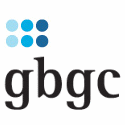ICE 2024 – Andrew Rhodes Speech at the Consumer Protection Zone
This speech was delivered by chief executive Andrew Rhodes at the Consumer Protection Zone at ICE on Tuesday 6 February 2024.
Please note: This is the speech as drafted and may slightly differ from the delivered version.
U.K. February 12, 2024 — Hello everyone and thank you for that introduction. Somehow, another 12 months has flashed by and we are all back here at ICE and back at the Consumer Protection Zone. It is great to see how this has grown over the last few years and the discussions that my team from the Commission have been already having with all of you at our ‘pod’ I think have proved its worth.
And we look forward to seeing how it continues to grow as ICE leaves London and moves to Barcelona next year. ICE has had its ups and downs in recent years but it has often provided a good space for industry, regulators and others to meet, share ideas and discuss shared challenges. So whilst this is the last ICE in London for the foreseeable future at least, we know the discussions across the Expo and especially here in the Consumer Protection Zone will be of great value this week.
Back to the last 12 months though and it is fair to say a lot has happened since we were last here. Gambling is always evolving and so is the role of a gambling regulator. That is certainly true at present here in Great Britain at the moment and I’ll of course touch on the White Paper and next steps later on.
I also want to spend some time on that idea of gambling as an ever evolving sector. But before I do, I just want to briefly thank my team at the Commission for the success we saw last week. Running the Fourth National Lottery Licence Competition and then working with Allwyn, Camelot and Government to implement the Fourth Licence in time to start it on 1 February was a huge undertaking and that it went so successfully is testament to the hard work of many people: at Allwyn and Camelot, at DCMS and also my own team at the Gambling Commission. We achieved something unique last week, the first change of operator in the National Lottery’s 30 year history and for that they all have my thanks.
Now back to gambling more widely and a question: how do we get the balance right?
Those that have heard me and others from the Gambling Commission speak before will know we often describe the gambling sector as highly competitive and innovative. And as many of you from the industry will know we as the regulator, also intervene when we see a need, both through our compliance and enforcement work and through consultations and changes to policy. As the last year shows, Government too can and does intervene.
Gambling then never stands still. Through innovation, changes in regulation and of course consumer behaviour itself, the eco-system of gambling is, if not in constant flux, at least always changing as each of us look to change the balance to better suit how we think it should be.
If you’ll forgive a bit of imagery from a normally reserved regulator for a moment, this constant motion can almost be seen as like a wave, with peaks and troughs between tightening regulation to minimise the risks of harm and to maintain a fair market, through to unrestrained consumer choice and industry innovation. But ultimately what’s good for everyone is when you are able to navigate to calmer waters and find the right balance.
Ultimately we all want safe, fair and crime free gambling, which still allows for consumer choice and innovation in the market. Each gambling jurisdiction will have slightly different tolerances on these points. Each jurisdiction is also likely to be on a different journey and on different points of those peaks and troughs. If your market has only recently opened up to online gambling for example there may be some quite choppy waters ahead and plenty of course corrections to make. But by our own measures, we all want a version of the same thing and I think for the vast majority in industry this is true too.
Already this week I have been in some really interesting sessions and meetings with colleagues from regulators all around the world as well as with industry compliance leads and lawyers. And often those conversations ultimately come back to that idea of whether we’re getting the balance right.
Great Britain is quite a mature gambling market. Sadly I’m using the word mature there in the same context that people use it about me these days – which is that the British market in its current form has been around quite a while now! Great Britain is though also the largest regulated online gambling jurisdiction in the world as well. Now we know that as the world further opens up that won’t remain the case forever. As with so many things though, doing things the first time is often harder than being able to follow an example. So, we have continued our work with other regulators in existing and emerging markets to share experiences, as well as intelligence.
Perhaps the hardest task we have in front of us is about that balance. The balance between protecting those who need it and not interfering with those who do not. This is a fierce debate at the moment and the reality is, problem gambling is not predictable. I have said many times, it is not like exposure to radiation where it is obvious the higher up the curve of exposure you travel, the more harm you will experience.
Gambling simply is not like that – in Great Britain, 22.5 million people gamble in one form or another each year – 44 percent of the adult population – and the vast majority do so without any issue, but we hopefully live in a civilised society, where we also recognise the small proportion of people who do experience problems can have life-changing outcomes, as can those around them and whilst the proportion may be small compared to the number of people who gamble, they represent hundreds of thousands of people.
Core to delivering the best balance between making a regulatory intervention and not interfering in people’s lives, is evidence. The better and more robust the evidence the more likely we are to get the balance right, though I recognise, what different groups feel is ‘right’ can differ greatly.
This is why the Gambling Survey of Great Britain, which will be the most comprehensive data set of its kind in the world when it is introduced is so important. The Gambling Survey of Great Britain, an independent review of which will be published this month and having already delivered results during its experimentation phase, continues to make progress towards full introduction. Following the publication of the final experimental data last November, we’re starting to build towards full official statistics this year and we’ll be publishing more data from this work later this month.
I think it is fair to say the last year has been an important one for what gambling looks like in the future in Great Britain. The publication of the Government’s White Paper last April was a key moment for everyone connected with or interested in gambling in Great Britain.
And it shows where we are in terms of striking the right balance for gambling in this part of the world too. Reading the original Gambling Act Review Call for Evidence, Government had given itself scope to fundamentally reset gambling across England, Scotland and Wales had it wanted to through the White Paper. The powers and resources of the regulator were discussed as well as large parts of the approach to gambling regulation. So, we welcomed the fact that the White Paper adopted so many of our own recommendations. When it comes to getting the balance right, the White Paper makes clear there is work to do, in terms of preventing gambling harms and minimising risk. But neither does it radically shut down industry’s ability to innovate or to compete with each other. And crucially it calls for more powers and resources for my team at the Commission to both keep the legitimate market safe and fair but to also take further action against illegal online gambling.
The implementation of the Government’s Gambling Act Review White Paper provides a once-in-a-generation opportunity to deliver positive change for gambling in Great Britain and for all people impacted by it. Government has of course been busy with the implementation over the last year, but for our own part, we have been working at pace. We are now already nearing the closing dates for the second round of consultations that we have conducted on White Paper recommendations.
The consultation covering that second round of topics, closes on 21 February and covers areas as important as socially responsible incentives, the use of customer-led tools like deposit limits and proposals to increase transparency to consumers if their funds are held by licensees that offer no protection in the event of insolvency. We want your views on all of these areas and more so if you haven’t responded to the consultation yet please get right to it by 21 February.
But one topic that we consulted on last Summer continues to attract attention and that is Financial Risk Checks. Our Summer consultations of course attracted a lot of responses, thousands in fact and in no small part down to the interest in Financial Risk Checks. And I want to thank everyone who took the time to respond.
There can be a lot of cynicism around consultations but we welcome all views and I hope I can reassure anyone here listening today or who reads this later, that we consider all responses carefully. Whilst we can never prejudge the results of a consultation before we have completed our work, consultation responses do make a difference and they do help us make sure regulation is as good as it can be.
We hope to be publishing next steps on Financial Risk Checks and other areas that we consulted on last Summer in the coming weeks. What I can say now though is that should we be in a position to take recommendations for Financial Risk Checks forward and of course, we are committed to a sensible implementation approach, such as phased implementation and use of pilots, to help ensure that they would be introduced smoothly for customers.
Besides this, the year ahead will see more important steps taken to implement the Government’s White Paper. A key part of implementation is improving the evidence and data around gambling and this is an area we have been working hard on at the Commission for some time now. Last year we held a one day conference titled ‘Setting the Evidence Agenda’ which saw packed sessions discussing how we can make better use of the data we already collect and how we can improve the evidence we gather. That event helped the development of our new participation and prevalence statistics and fed into the publication of our three year evidence gaps project. So following the success of last year’s Conference, we’ve organised another one-day event for next month. ‘Better Evidence, Better Outcomes’, will look further at some of the questions raised by our three year project on the evidence gaps we see in gambling research. I am afraid it’s already a ‘sell out’ as they say, so if you haven’t already signed up you won’t be able to now. But I’m sure we’ll be publishing plenty of updates after the event highlighting some of the discussions on the day.
One of the underlying reasons for events like that conference is to try to bring different parties together to find solutions to these difficult problems. Groups who may have never been in the same room before and who might hold very different opinions to one another. The debate around gambling regulation is so polarised and I see positions hardening all the time. I see all sorts of accusations made, and second-guessing of what certain people think, who or what has influenced them, even what mood they were in when they wrote something.
I think we need to accept in a difficult debate that someone can have a different view to yours, but in setting out a different perspective or highlighting the evidence, we are not necessarily trying to take someone’s opinion away from them.
There will, of course, be more consultation work to come. We know this can generate a lot of work for industry and others like the academic community too so we will of course continue to give updates on when you can likely see these consultations being published and what they will contain.
I wanted to spend my time with you today looking at the push and pull that gambling is subjected to: between tightening regulation to minimise risk and giving more room to operators to innovate and expand consumer choice. It is a question that Governments and regulators have to grapple with the world over. Following the progress we have made in our compliance and enforcement work here in Great Britain in recent years, it is also increasingly a question that we are able to spend more time when looking at gambling in Great Britain.
Getting the balance right is important. And keeping that balance is a job that’s never done. Thank you for listening to me today, I am looking forward to your questions.
Thank you.
SOURCE: Gambling Commission.
Tags: Consumer Protection Zone (CPZ), Andrew Rhodes, ICE 2024



























